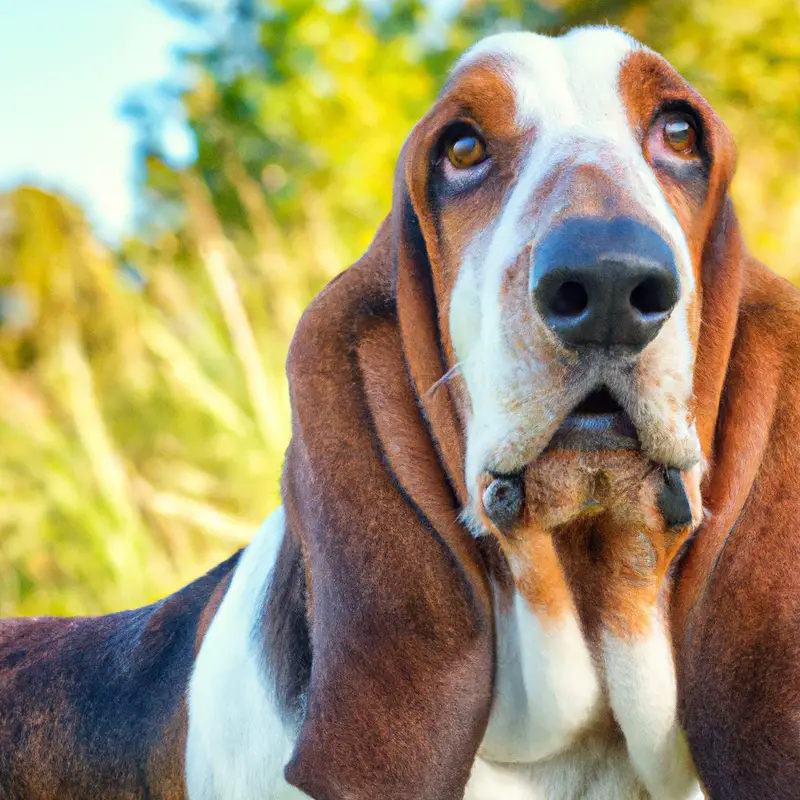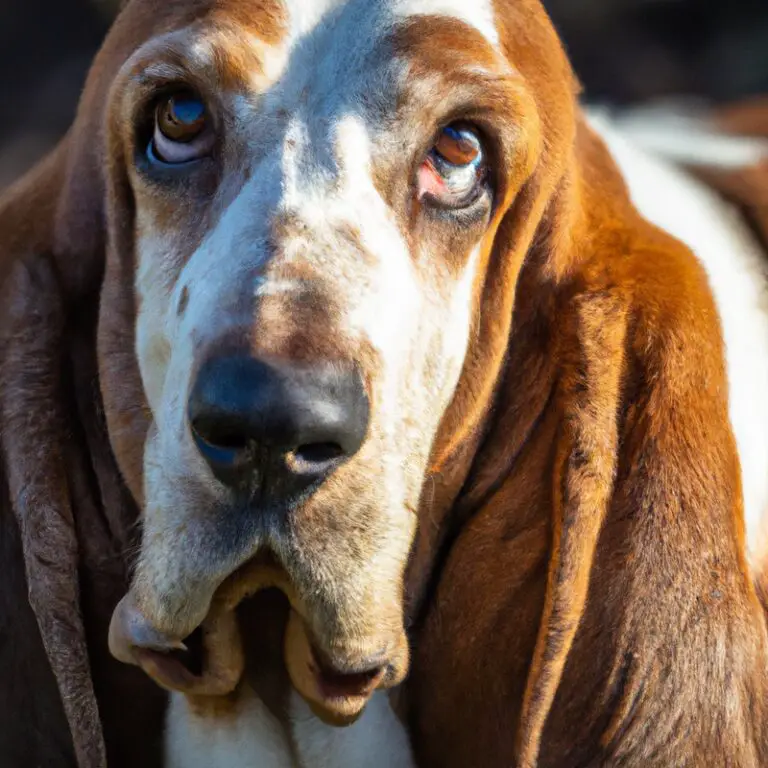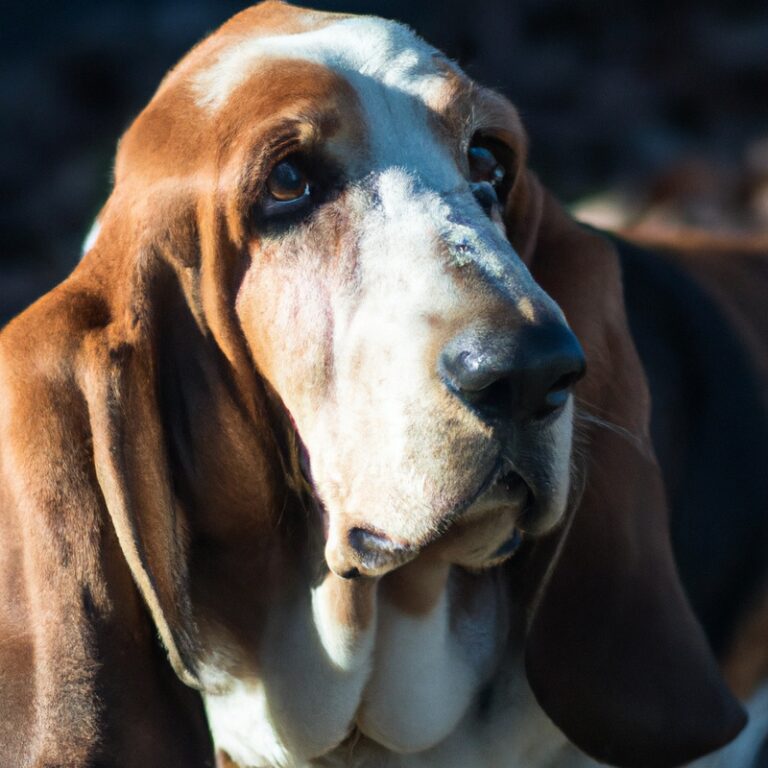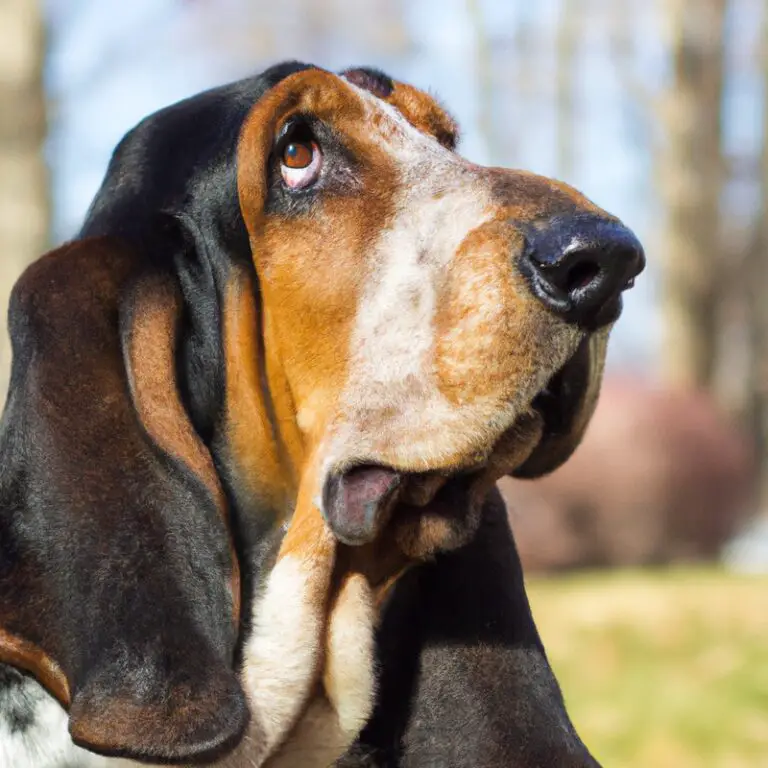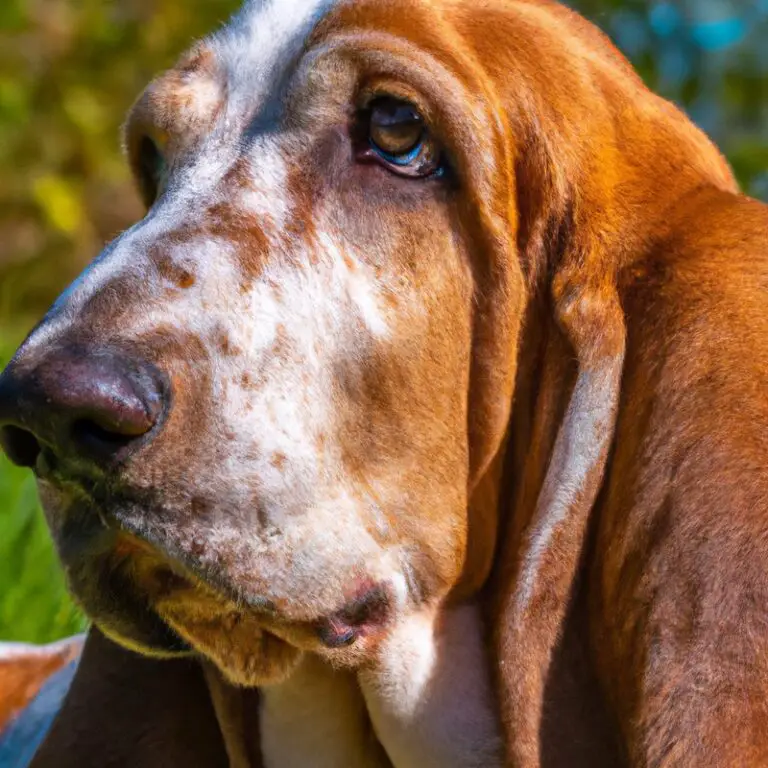Can Basset Hounds Be Trained For Flyball Competitions?
Key Takeaways:
- Basset hounds can be trained for flyball competitions.
- Their stubborn nature and short legs may pose challenges during training.
- Consistency, patience, and positive reinforcement are key to successful training.
- Basset hounds may not excel in flyball as much as other breeds, but they can still participate and have fun.
Do you think Basset Hounds, with their low stature and laid-back demeanor, have what it takes to compete in flyball? As an expert in dog training, I’m here to tell you that they absolutely can! Flyball, a thrilling relay race for dogs, might seem like a sport tailored for the fast and furious breeds, but Basset Hounds can surprise you with their skills.
In this article, we’ll explore the challenges of training these floppy-eared darlings for flyball, uncover their natural abilities, and provide you with tips and techniques to help your Basset Hound become a flyball champion.
So, let’s dive in and discover the world of Basset Hound flyball!
| Question | Answer |
|---|---|
| Can Basset Hounds be trained for flyball competitions? | Yes, but it may be challenging. |
| Pros | – Basset Hounds are intelligent and eager to please, making them trainable – They have a strong drive to chase and retrieve objects, which is essential for flyball – Basset Hounds can excel in other dog sports that require speed and agility |
| Cons | – Basset Hounds have a low energy level and may not be as fast as breeds specifically bred for flyball – Their short legs and long bodies might make it difficult to clear the hurdles – Training may require more patience and consistency due to their independent nature |
| Additional Considerations | – Prioritize positive reinforcement and rewards in training – Start training at an early age to develop desired behaviors – Consult with a professional dog trainer experienced in flyball and hound breeds |
What is Flyball?
Definition of Flyball
Flyball is a fast-paced, team-based sport for dogs. It involves a relay race with teams of four dogs each.
The objective is for each dog to run down a course, jump over hurdles, trigger a release mechanism to retrieve a tennis ball, and then return over the hurdles to the start/finish line.
The next dog in the team then takes their turn. The team with the fastest cumulative time wins.
It’s a thrilling and exciting sport that showcases a dog’s speed, agility, and teamwork.
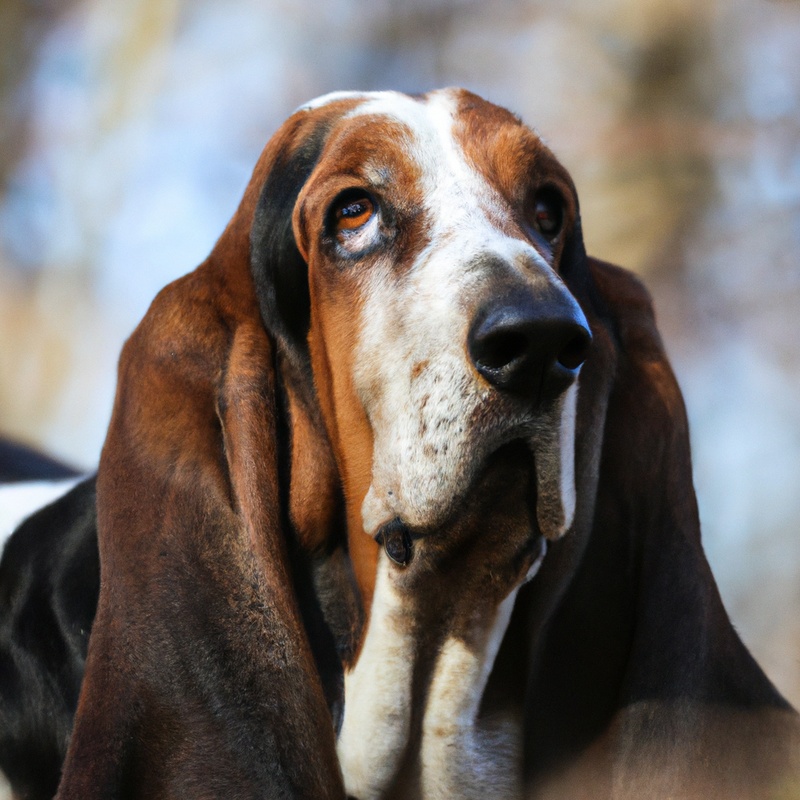
How Flyball competitions work
Flyball competitions involve teams of dogs racing against each other in a relay race. Each team has four dogs, and the goal is for each dog to jump over a series of hurdles and trigger a box that releases a tennis ball.
The dog must then catch the ball and return over the hurdles to their handler.
The next dog on the team will start their turn once the previous dog has completed the course. The team that completes the course fastest, with the fewest errors, wins the competition.
It’s a fun and exciting sport that showcases the agility and speed of dogs.
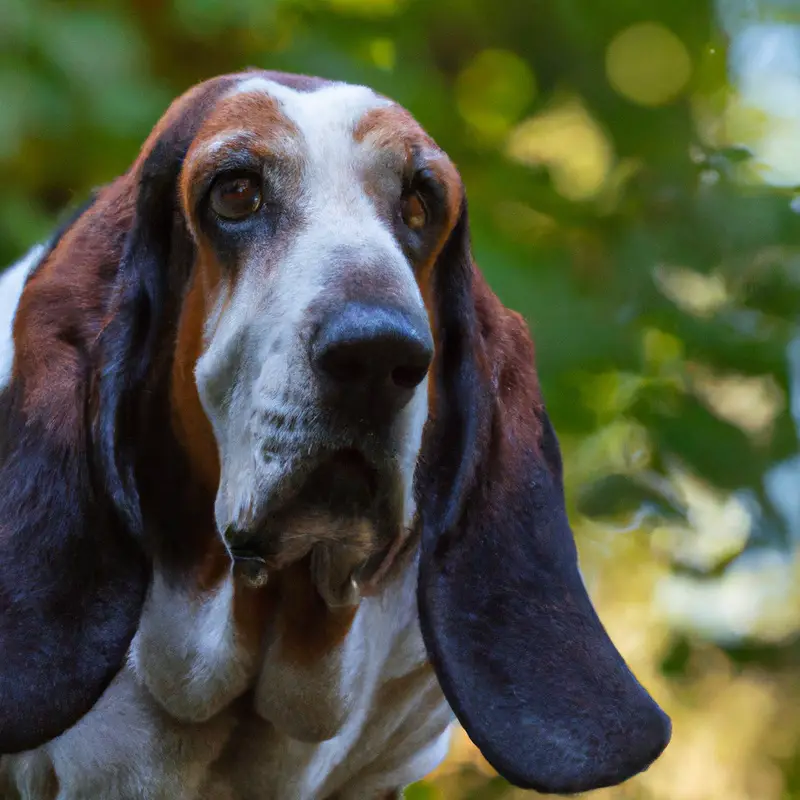
Training Basset Hounds for Flyball
The Challenges of Training Basset Hounds for Flyball
Training Basset Hounds for flyball competitions can present some unique challenges.
Their stubborn nature and independent streak can make them resistant to training.
Their short stature and long body pose physical challenges.
Additionally, their scent-driven instincts may distract them during training.
It is important to approach training with patience, consistency, and positive reinforcement.
Early socialization and obedience training are crucial for their success.
Tailoring training techniques to fit their individual needs and employing mental stimulation are key strategies.
With the right approach, Basset Hounds can excel in flyball.
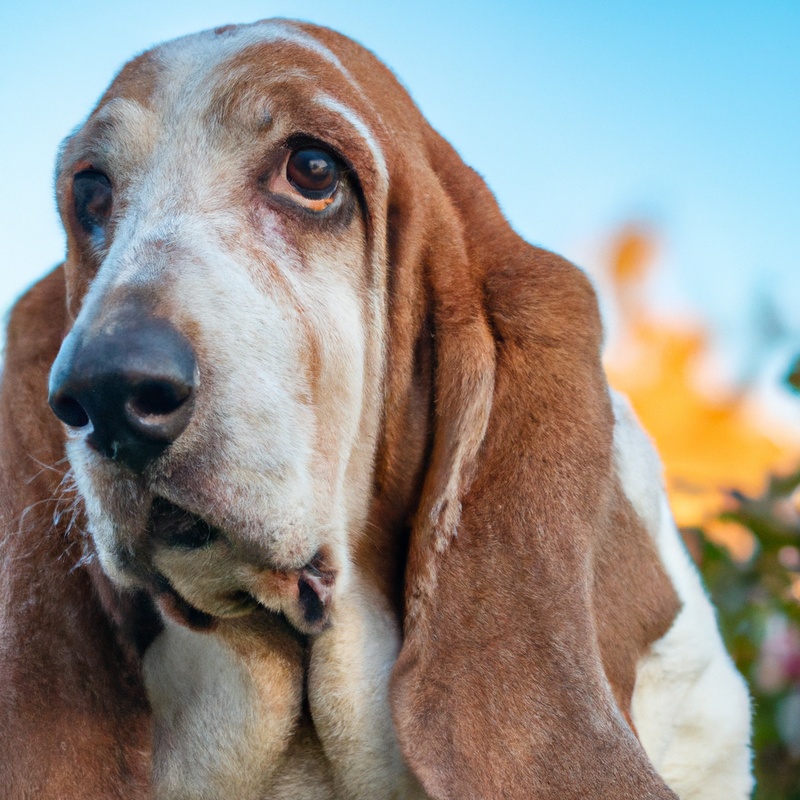
Importance of Early Socialization and Obedience Training
Early socialization and obedience training are vital for basset hounds to succeed in flyball competitions.
- Socialization helps them become comfortable around people, other dogs, and various environments, reducing anxiety and fearfulness.
- Obedience training teaches them important commands, such as recall and stay, which are essential for flyball.
- Early training establishes a solid foundation, making it easier to build upon and refine their skills as they grow.
- It fosters a positive relationship between the dog and owner, enhancing communication and cooperation.
- It also helps prevent behavioral issues and ensures the safety and well-being of both the dog and those around them.
By prioritizing early socialization and obedience training, basset hounds can excel in flyball.
Specific Training Techniques for Basset Hounds in Flyball
Training Basset Hounds for flyball can be challenging, but with the right techniques, it’s definitely possible.
Here are some specific training techniques that work well for Basset Hounds in flyball:
- Start with basic obedience training: Teach your Basset Hound commands like sit, stay, and recall. This will provide a solid foundation for more advanced training.
- Focus on speed and agility: Incorporate exercises that improve your dog’s speed and agility. Set up obstacle courses and practice running drills to help your Basset Hound navigate the flyball course quickly.
- Introduce the flyball box gradually: The flyball box can be intimidating for some Basset Hounds. Start by introducing it without the tennis ball, and gradually add the ball as your dog becomes comfortable.
- Use positive reinforcement: Reward your Basset Hound with treats, praise, and play when they perform well during training sessions. Positive reinforcement helps motivate and reinforce desired behaviors.
- Practice with a team: Join a flyball team or find other dogs to practice with. Training in a group setting will help your Basset Hound get used to the excitement and distractions of flyball competitions.
Remember, patience and consistency are key when training Basset Hounds for flyball.
Tailor your training techniques to suit your individual dog and stay positive throughout the process.
Flyball Skills and Abilities of Basset Hounds
Natural Abilities of Basset Hounds in Flyball
Basset Hounds may not be the first breed that comes to mind when thinking about flyball, but they do have natural abilities that can make them successful in the sport.
With their low center of gravity, Basset Hounds have excellent balance, which helps them maneuver quickly during races.
They also have strong scent-tracking abilities, allowing them to locate the ball easily.
Additionally, their determination and loyalty make them eager to please and willing to work hard in training.
While their short legs may not give them the same speed as some other breeds, Basset Hounds can still excel in flyball with the right training and encouragement.
Building Speed and Agility in Basset Hounds
Building speed and agility in Basset Hounds is a key aspect of training them for flyball competitions. To enhance their speed, regular exercise and conditioning are essential.
Incorporate activities such as sprinting and interval training to improve their speed.
Agility can be enhanced through exercises like weaving through obstacles and jumping over hurdles. Consistency in training is crucial to ensure progress.
Remember: every dog is unique, so tailor the training to your Basset Hound’s abilities and always prioritize their safety and well-being.
Patience and positive reinforcement will go a long way in building their speed and agility skills.
Overcoming Basset Hound Characteristics in Flyball Training
Basset Hounds have some characteristics that can make flyball training challenging.
Firstly, their short legs and long bodies can affect their speed and agility.
Secondly, Bassets can be stubborn and independent, making it harder to motivate them during training sessions.
Thirdly, their strong scenting instincts may distract them from focusing on the task at hand.
To overcome these challenges, consistent and patient training is key, along with positive reinforcement and rewards.
Focusing on building their confidence and gradually increasing their training intensity can help Basset Hounds excel in flyball.
Remember, each dog is unique, so tailoring the training approach to their individual abilities is crucial.
Common Mistakes in Training Basset Hounds for Flyball
Lack of Consistency in Training Sessions
Consistency is key when training Basset Hounds for flyball competitions.
One common mistake is a lack of consistency in training sessions.
Basset Hounds thrive on routine and repetition, so it’s important to establish a regular training schedule.
Make sure to train at the same time each day and allocate dedicated training sessions.
Consistency also applies to your training methods and cues.
Using consistent commands and rewards helps your Basset Hound understand what is expected of them.
Training should be a regular practice, not something sporadic.
Aim for short, frequent sessions to keep your Basset Hound engaged and focused.
Overlooking Mental Stimulation
One common mistake in training Basset Hounds for flyball is overlooking their need for mental stimulation.
These dogs are intelligent and thrive when given opportunities to engage their minds.
Without mental stimulation, they may become bored and lose interest in training.
To avoid this mistake, incorporate brain games, puzzle toys, and obedience exercises that challenge their problem-solving skills.
Additionally, vary training routines to keep their minds engaged and prevent monotony.
By providing mental stimulation, you can enhance your Basset Hound’s focus and enthusiasm for flyball training.
Not Tailoring Training to Individual Basset Hound’s Abilities
One common mistake in training Basset Hounds for flyball is not tailoring the training to each individual dog’s abilities.
Each Basset Hound is unique, with different strengths, weaknesses, and learning styles.
It’s important to assess their physical abilities, such as speed and agility, and adapt the training accordingly.
Additionally, considering their temperament and motivation is crucial for a successful training experience.
Taking the time to understand and work with your Basset Hound’s specific abilities will greatly improve their performance in flyball competitions.
Preparing Basset Hounds for Flyball Competitions
Physical Conditioning for Stamina and Endurance
Physical Conditioning for Stamina and Endurance To prepare Basset Hounds for flyball competitions, physical conditioning is key.
Training sessions should focus on building stamina and endurance in these dogs.
Regular exercise, such as long walks or runs, will help improve their cardiovascular health.
Incorporating interval training, where they alternate between fast bursts of energy and slower periods, can also enhance their endurance.
It’s important to gradually increase the intensity of their workouts to avoid injuries.
Additionally, activities like swimming or playing fetch can work different muscle groups and improve overall fitness.
Remember, consistency is key for their physical development.
Proper Nutrition and Health Maintenance
Proper nutrition and health maintenance are essential for Basset Hounds participating in flyball competitions. A balanced diet consisting of high-quality dog food with the right amount of protein, carbohydrates, and fats is key.
It’s also important to monitor their weight and adjust their food intake accordingly.
Regular exercise and mental stimulation keep them physically and mentally fit. Regular vet check-ups, vaccinations, and parasite prevention are vital to ensure their overall health and well-being.
Mental Preparations for Competition Day
On competition day, mental preparations are key to setting your Basset Hound up for success.
Here’s what you can do to help your furry friend stay focused and perform their best:
- Maintain a calm environment: Before heading to the competition, create a relaxed atmosphere at home. This will help your Basset Hound stay calm and focused.
- Visualize success: Take a few moments to visualize your Basset Hound acing each aspect of the competition. Positive visualization can boost their confidence and performance.
- Practice routine: Stick to your usual training routine on competition day. This familiarity will help your Basset Hound stay confident and focused.
- Provide mental stimulation: Engage your Basset Hound’s mind with puzzle toys or training sessions before the competition. Mental stimulation can help them stay sharp and focused.
- Keep your own energy positive: Dogs are experts at picking up on our emotions. Stay positive, calm, and enthusiastic to help your Basset Hound feel relaxed and ready to perform.
Remember, mental preparations are just as important as physical training.
With a calm and focused mindset, your Basset Hound will be well-prepared for competition day!
Final Verdict
Basset Hounds can definitely be trained for flyball competitions with the right approach and understanding of their unique characteristics.
While they may face challenges due to their slower speed and stubbornness, early socialization and obedience training can help in their overall development.
By focusing on building their speed and agility, while also tailoring the training to their individual abilities, Basset Hounds can excel in the exciting sport of flyball.
However, it is important to avoid common training mistakes and ensure proper physical conditioning, nutrition, and mental preparations to optimize their performance on competition day.
With dedication and patience, Basset Hounds can become competitive and successful in flyball competitions.
In conclusion, Basset Hounds can excel in flyball competitions with proper training and understanding of their unique attributes.
By implementing early socialization and obedience training, Basset Hounds can develop the necessary skills and mindset for success in flyball.
Additionally, focusing on building their speed and agility, while overcoming their stubbornness, will enhance their overall performance.
Avoiding common training mistakes, such as lack of consistency, and providing mental stimulation are crucial for achieving optimal results.
Lastly, thorough physical conditioning, proper nutrition, and mental preparations will ensure that Basset Hounds are fully prepared for the challenges of flyball competitions.

